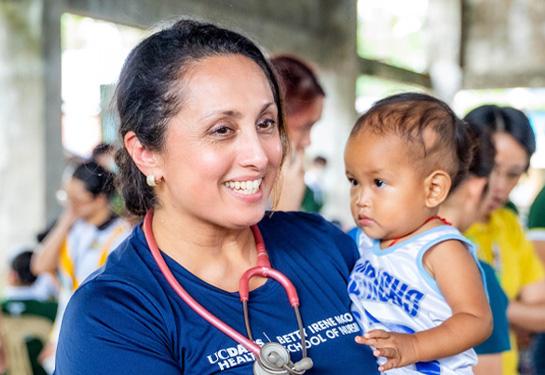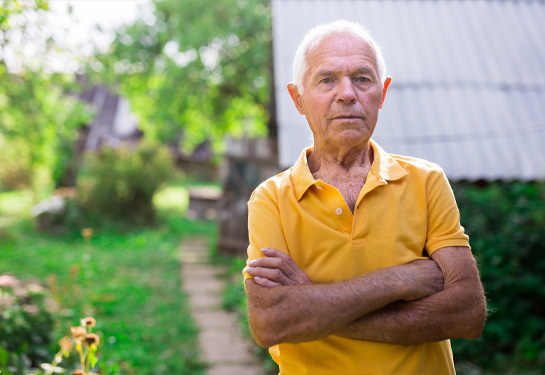DNP-FNP Academic Symposium marks milestone for UC Davis nursing school
Inaugural cohort presents projects aimed at improving patient outcomes
Students, faculty, family and friends gathered at Betty Irene Moore Hall to mark a key milestone for students in the Doctor of Nursing Practice — Family Nurse Practitioner (DNP-FNP) program.
The 2025 Academic Symposium, on May 17, was the first time the Betty Irene Moore School of Nursing at UC Davis hosted a formal event where DNP-FNP students presented the outcomes of their scholarly projects. The symposium featured poster and oral presentations from the 21 graduating students, as well as remarks from guest speakers.
“The event was the chance for students to show the real impact of their work — sharing evidence-based practice, tackling real health care problems and leading change for better health,” said Charleen Singh, DNP-FNP program director. “They are the first class to graduate from this program that launched in 2022 and they surpassed all expectations.”
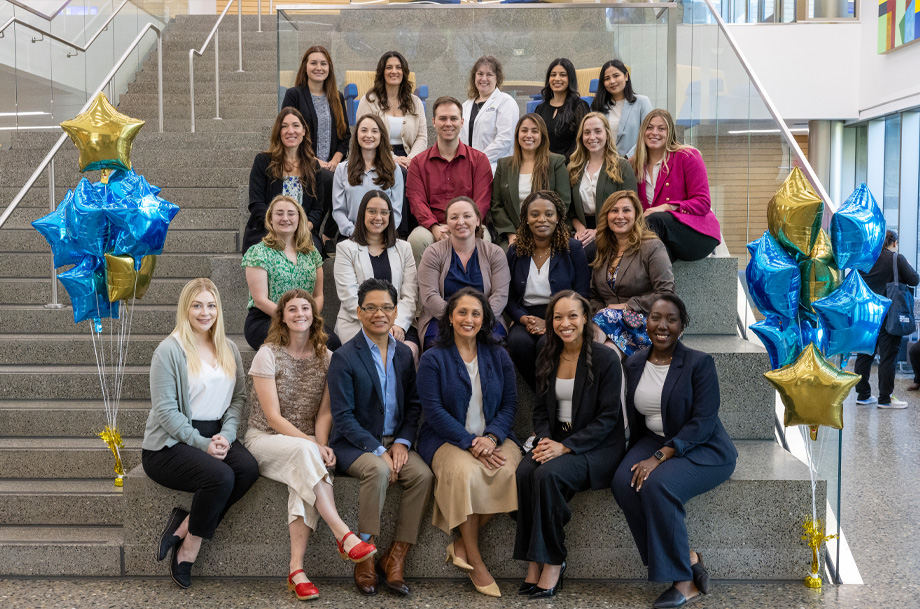
Scholarly projects
The scholarly projects involved designing, implementing and evaluating a quality improvement or practice change in a specific setting, such as a primary care clinic or community health setting. The DNP-FNP project is the culmination of three years of study and takes what students learn in school and uses it to solve real problems in health care.

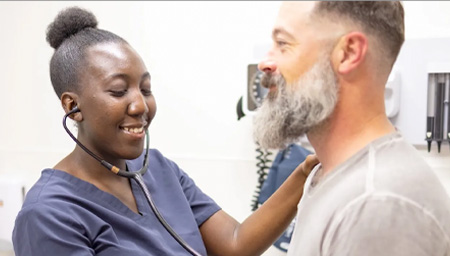
These projects affect both micro and macro levels in health care, whether the impact is one patient or an entire community. The idea is to improve care in communities by implementing evidence-based care. The DNP-FNP scholars bring to life the research findings of PhD colleagues and other scholars. They are valuable partners for leaders addressing the challenges of health care today and the future.
“Each student’s project showed how much they care about the School of Nursing mission, diverse populations and how committed they are to making a difference. From improving care in local communities to raising awareness around the world, these DNP students brought knowledge, heart and real change,” said Joanne Minnick, an assistant professor and project chair. “Their work helps patients, families and health care teams, and proves that nursing can lead the way in solving big problems with smart, caring solutions.”
DNP and PhD
Like a Doctor of Philosophy (PhD), the DNP is a terminal degree. But the courses of study serve different purposes.
The DNP is a practice-focused degree. It prepares nurses to lead in clinical settings, improve patient care and apply research to real-world practice. Think of it as training nurse leaders and change-makers in health systems.
The PhD is a research-focused degree. It prepares nurses to become scientists who create new knowledge, design studies and teach the next generation. These nurses shape the evidence that DNPs then put into action.

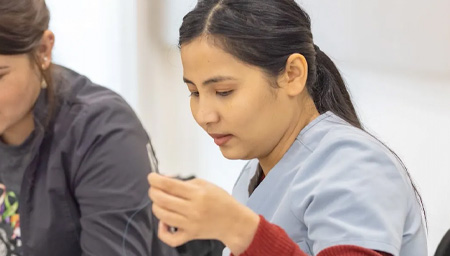
“PhDs build the science and DNPs apply it to improve care,” Singh explained. “Their scholarly projects bridge the gap between theory and practice by applying research in real settings.
Bridging the gap
It typically takes 17 years for health care research to move from initial discovery into routine clinical practice. The School of Nursing’s students want to be a part of a quicker solution.
“We have the research, but who's bringing it into practice? We really are the [middle person] to alleviate those problems. You don't have to wait those 17 years. You can get some impact and have some real benefit to those you serve,” said graduating student Catherine Koanja.
“I see myself as a clinician and also a leader,” added classmate Samiksha Dhakal. “It allows me to help them as a clinician and as a part of the research team working together with the PhD researchers to implement this.”
At the symposium, these graduating students presented posters on topics ranging from oncology nutrition and weight management prescription to improving digital literacy and risk assessments in primary care. After the School of Nursing commencement on June 12, these future nurse leaders hope to put their education into action to make meaningful, measurable change.


